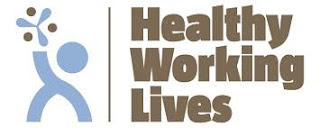SCC68 - Unable to Gain Access Policy and Procedure
Purpose
l
To ensure that all care is delivered safely and in accordance with contractual requirements.
l
To safeguard all vulnerable service users, whilst balancing risk, independence and choice.
Scope
l
All staff.
Policy
l Staff are required to alert Social Care Alba if they are unable to gain access to a service user’s property.
Procedure –
Stage 1 – All Care Staff
l If you are unable to gain access to a service user’s home, you must immediately call 0131 285 1606 and inform
the on-call manager.
l
Do not leave the property until you have been told to do so by the on-call
manager.
l
Where possible
attempt to identify if the service user is at home or at risk by:
1. Accessing the property if a key is
available
2. Looking through the windows to see if the service user can be seen
3. Knocking on the door and/or window to gain the attention of the service user.
4. Calling out the service users name
through the letter box and listening for a reply
5. Ask neighbours if they have seen the service user.
l Please update the on-call manager on the actions taken and any feedback from neighbours.
Procedure –
Stage 2 - The On-Call Manager
l Unless there is a written agreement to the
contrary you shall make extensive enquiries as to the whereabouts of the service user, by:
1.
Contacting the service user’s next of kin or emergency
contact
2.
Checking the local hospital for a recent admission.
3.
Phoning Social Care Direct 0131 200 2324 or Emergency Social Work on 0800 7316969
l You must keep in contact with the care staff updating them on action taken. A record must be kept on the care management
system of every individual contacted, the
outcome and time.
l If the service user cannot be positively located elsewhere within 30 minutes of the staff reporting the No Access, you must contact the Local Police on 999 in an emergency or 101 at all other times to advise of the No Access and to request a Welfare Check. The Police may decide to force entry if necessary.
l Finally you must ensure that:
1.
Care Staff both current and within the next 24 hours are
updated, amending shifts as required
2.
An update is given by phone to Social Care Direct or
Emergency Social Work
3.
An update is given to the Directors and relevant SCA staff by
email
ENDS







